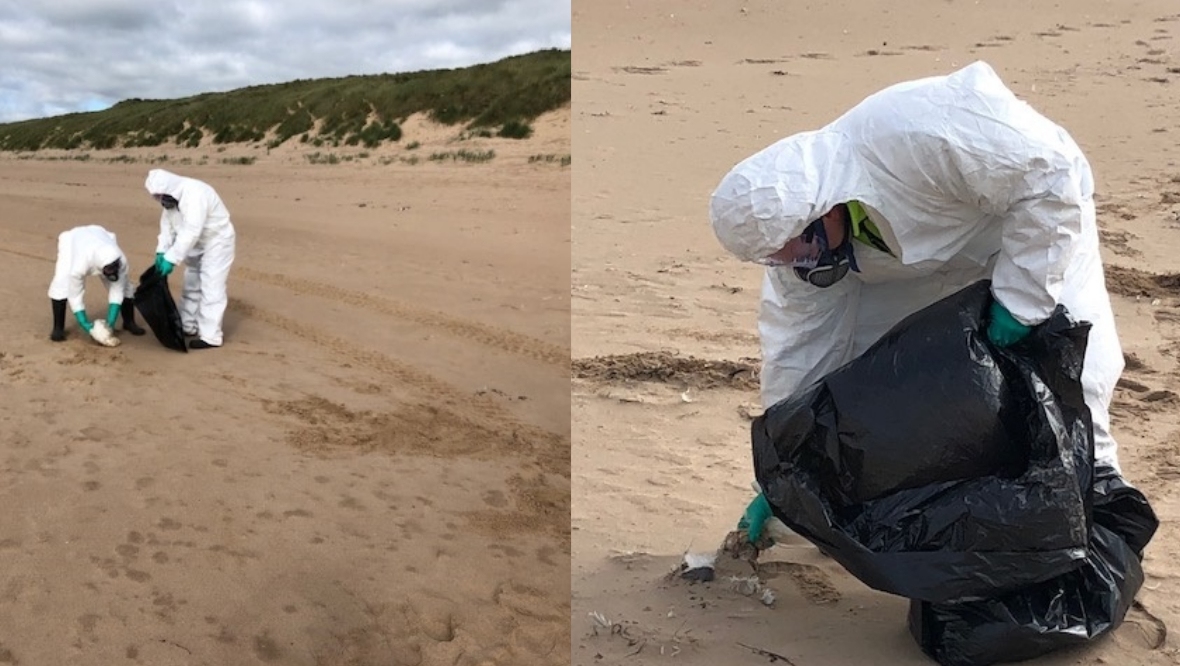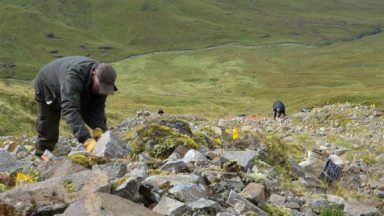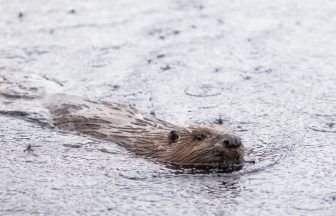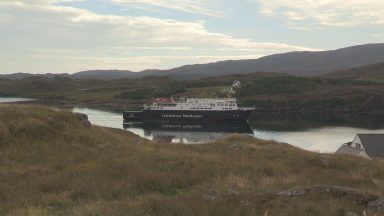A taskforce to combat the severe outbreak of avian flu has recommended banning tourists from 23 islands in Scottish waters.
Experts say the current strain of H5N1 avian flu is the “worst in two decades”, leaving thousands of seabird colonies ravaged and beaches littered with their corpses.
Aberdeenshire Council alone has reported over 1,000 dead seabirds collected and disposed of from beaches across the region.
East Lothian’s Bass Rock also saw a massive downtick in numbers of gannets, measured by University of Edinburgh drone teams.
To curb this, a special taskforce is now recommending closing down public landings on 23 islands to stop the spread of the virus.
 Aberdeenshire Council
Aberdeenshire CouncilIt said that this would allow seabirds a fighting chance to survive and recover from the severe outbreak.
“Many of our Scottish islands are a haven for internationally important bird populations,” said NatureScot’s deputy director of nature and climate change, Eileen Stuart.
“With the avian flu crisis evolving so quickly, we have to respond to reduce the spread of this virulent disease. Tragically, this destructive disease could be with us for some time to come.”
Prior to making the recommendation, the wildlife group carried out rapid assessments of all island Special Protection Areas (SPAs) designated for breeding seabirds, in consultation with island managers.
As part of the ban, tourists will still be able to embark on boat trips to view the islands and all they have to offer from a distance, however they will not be allowed to go onshore.
The special taskforce was announced by NatureScot recently, to focus on tackling the H5N1 influenza alongside planning for future outbreaks
The virus is widespread across Scotland, with positive cases recorded in Shetland, Orkney, Outer and Inner Hebrides, Highland, Moray, Aberdeenshire, Angus, Fife, East Lothian and Scottish Borders.
Great skua, gannet and guillemot have been hardest hit by the recent outbreak. Sample surveys of colonies showed an 85% decline of great skua in Orkney, and a 25% decline of gannet numbers in Shetland colonies.
Great black-backed gull, herring gull, kittiwake, Arctic tern, Sandwich tern, razorbill and puffin have also tested positive.
Full list of islands recommended for closure:
Until the end of August for breeding puffins, Arctic skuas and Arctic terns:
- Orkney – Calf of Eday, Swona & Muckle Skerry
- Firth of Forth – Craigleith, Inchmickery, Isle of May
Until mid-September for breeding great skuas, common terns, cormorants and fulmars:
- Shetland – Noss
- Argyll – Glas Eileanan (Sound of Mull)
- Firth of Forth – Lamb and Fidra
Until mid-October for breeding gannets, storm-petrels and Manx shearwaters:
- Shetland – Ramna Stacks & Gruney
- Western Isles – Flannan Isles, North Rona & Sula Sgeir, St Kilda (Dun, Soay, Boreray, Stac an Armin and Stac Li – excluding the main island of Hirta)
- Highland – Priest Island
- Argyll – Treshnish Isles
- Firth of Forth – Bass Rock
Follow STV News on WhatsApp
Scan the QR code on your mobile device for all the latest news from around the country




























